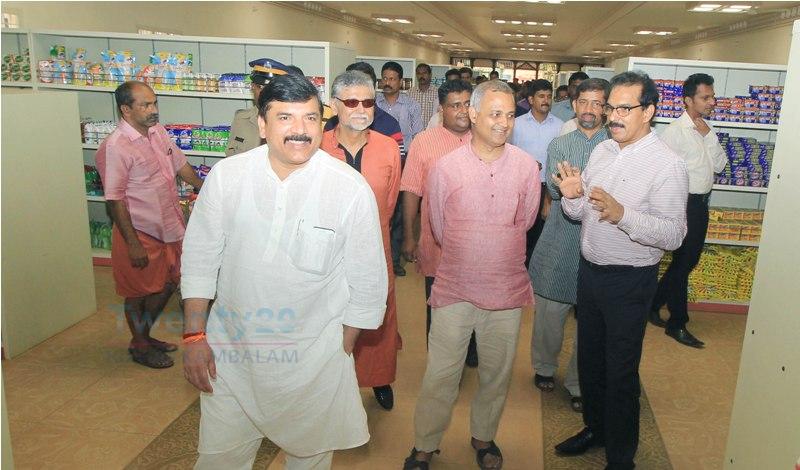
- Home
- India
- World
- Premium
- THE FEDERAL SPECIAL
- Analysis
- States
- Perspective
- Videos
- Sports
- Education
- Entertainment
- Elections
- Features
- Health
- Business
- Series
- In memoriam: Sheikh Mujibur Rahman
- Bishnoi's Men
- NEET TANGLE
- Economy Series
- Earth Day
- Kashmir’s Frozen Turbulence
- India@75
- The legend of Ramjanmabhoomi
- Liberalisation@30
- How to tame a dragon
- Celebrating biodiversity
- Farm Matters
- 50 days of solitude
- Bringing Migrants Home
- Budget 2020
- Jharkhand Votes
- The Federal Investigates
- The Federal Impact
- Vanishing Sand
- Gandhi @ 150
- Andhra Today
- Field report
- Operation Gulmarg
- Pandemic @1 Mn in India
- The Federal Year-End
- The Zero Year
- Science
- Brand studio
- Newsletter
- Elections 2024
- Events
- Home
- IndiaIndia
- World
- Analysis
- StatesStates
- PerspectivePerspective
- VideosVideos
- Sports
- Education
- Entertainment
- ElectionsElections
- Features
- Health
- BusinessBusiness
- Premium
- Loading...
Premium - Events

In Kerala, a Twenty20 story that's no longer a crowd-pleaser
While some argue that the entry of corporates in governance is good since it benefits neglected sections of the society and enhances quality of life, others point to a number of conflicts in the arrangement, the environmental pollution caused by Kitex factories a case in point here.

For the quaint village of Kizhakkambalam in Kerala’s Ernakulam district, stone tiled roads dotted with freshly painted new houses and a supermarket selling vegetables and groceries at half the market price seemed like the ultimate dream come true—a village life with all basic amenities that city people were enjoying not too far away in Kochi in 2015. But five years down the line,...
For the quaint village of Kizhakkambalam in Kerala’s Ernakulam district, stone tiled roads dotted with freshly painted new houses and a supermarket selling vegetables and groceries at half the market price seemed like the ultimate dream come true—a village life with all basic amenities that city people were enjoying not too far away in Kochi in 2015. But five years down the line, the veneer is peeling off Kizhakkambalam grama panchayat run by Twenty 20, an organisation formed by Kitex group of companies.
With the local bodies election round the corner, the ‘corporate panchayat’ is back under the spotlight in Kerala. Kizhakkambalam is probably the only panchayat in India where a corporate runs the local body government.
‘Twenty 20’, an organisation formed by Kitex group, a top garment and aluminium products manufacturing company in Kerala, swept the 2015 elections, winning 17 of the 19 wards in the panchayat and delivering a severe blow to political giants, Congress and the CPI(M), which have wielded power in civic bodies across the state for ages.
Formed by Kitex group managing director Sabu M Jacob in 2013 with an eye on the 2015 panchayat polls, the organisation worked systematically to strengthen its relationship with the people, all funded by its CSR fund.
Twenty20 spark
Before its venture into politics, Kitex group was at loggerheads with political parties, especially Congress, which was in power between 2010 and 2015. Environmental pollution was a major reason; a people’s movement had consistently raised opposition to the company’s poor management of waste which was causing water and land pollution and affected farming. The Congress-led administration had thus refused to grant environmental clearances to it.
For Sabu Jacob, there was only one solution—capture the panchayat administration and throw the Congress out of power.
With Twenty20, a charitable initiative, he offered an alternative to the people who were fed up with the LDF and UDF. MSW graduates were hired, a committee of hundred members was formed in each ward and all their activities were monitored and controlled by Sabu Jacob, who was also the chief coordinator of Twenty20. The elected panchayat members, including the president, were only as good as staffers of Twenty20 rather than independent representatives of the panchayat.
Freebies and subsidies were offered to people in abundance. Smart cards were given to every household with which they could access stores run by Twenty20 to get things at subsidised rates. The promises were big—healthcare, sanitation, housing, drinking water and food for everyone, and even employment generation for some.
Tide has turned
Five years down the road, with all the freebies and benefits, many are still unhappy, including some of its founding members.
Panchayat president KV Jacob, who was one of the leaders of Twenty20 since its inception and has quit, says there is no transparency or democracy. “It’s a one man show. The chief coordinator Sabu Jacob is the sole authority. Everyone else including elected members are like his subordinates.”
The panchayat members are paid a regular salary by the Kitex group in addition to the honorarium paid by the government. Jacob says he used to be paid ₹25,000 every month.
“The members get ₹15,000 each. We never thought this would cost us our independence and liberty. We were just treated like employees. All the decisions were taken by Sabu,” he says.

MV George, who quit as standing committee chairman and member of 15th ward and his Twenty20 membership, says they all went with Twenty 20 hoping that a public private partnership in governance would help in the comprehensive development of the panchayat.
“But what we have eventually witnessed is a complete shift into an authoritarian and autocratic practice.”
George says this went to the extent of controlling the personal affairs and family matters of people. He admits that this was the immediate reason that led to his resignation last year.
“I invited everyone irrespective of their political affiliations for the marriage ceremony of my daughter. I was instructed by Sabu Jacob not to invite anyone who is an ‘enemy’ of Twenty20, including the two non-Twenty20 members of the panchayat (one from SDPI and the other from Congress). I could not agree with this as we never have had this practice of hating people on the basis of politics. When Sabu came for the marriage, he saw the two members on the stage greeting the couple. He left without attending the function and later he asked me to submit my resignation,” he says.
Lalu Varghese, who contested the 11th ward as a Twenty20 candidate, was the first to go in for an open conflict with the organisation.
“We did not have freedom. We were not allowed even to attend funerals of people belonging to rival parties. In panchayats, we used to cooperate with everyone irrespective of political affiliations. For anything and everything, we have to take approval from Sabu Jacob,” she says. She resigned from the position as the member of the ward even before George.
Sensing the limitations of a charity initiative, Twenty 20 was registered as a political party recently. Since the members were elected as independent candidates, a charity organisation cannot use anti-defection law against them even if they quit without the approval of the leadership.
Even common man affected
Not only Twenty20 members, even ordinary people too had similar stories to share. 42-year-old Meena, a Dalit woman who was an active member of Twenty20, says the organisation had promised to repair her house which had gotten damaged during the rains in 2018, only to back out later. The reason, she says, was because she defied an order from Twenty20 to abstain from voting for an election to the rural cooperative society.
“The ward member (of Twenty20) came to meet me and asked me to abstain from voting. I reminded her that it was my vote that enabled her to stand in front of me as a ward member,” says Meena, a commerce graduate doing odd jobs under the MGNREGA, asserting that she is very particular about voting rights.
The CPI(M) later took up the issue and managed to get her a new house under the ‘Care Home’ project.
Local Congress leader Reji Varghese acknowledges CPI(M) in this regard despite being a political opponent, something that cannot be expected at all from Twenty20 members.
“The Twenty 20 members were too scared to attend the housewarming ceremony for which she invited everyone irrespective of their political identity,” says Reji.
Augustine Antony, Twenty20 secretary, tells The Federal that the organisation does not want to share ‘platforms’ with opponents. He refused to divulge further when quizzed about the various allegations against the organisation and Sabu Jacob.

Despite repeated requests, Sabu Jacob was not available for comments.
Local Congress and CPI(M) workers say that Twenty20 is generally hostile to mainstream media.
“WhatsApp is the mode of communication,” says Reji, who runs the FB page ‘Kizhakkambalam Politics’ to campaign against Twenty20. “There are ‘admin only’ WhatsApp groups for every ward. People are fed with one-sided information through these groups. They don’t need the media.”
Recently, a reporter of a Malayalam online media was manhandled allegedly by Twenty20 members.
Farmers cry foul
For farmers in the village, especially those close to the Kitex garment factory, the environmental pollution from its bleaching unit is a yet unresolved matter.
The paddy field of Narayanan, a farmer in the 11th ward, shows telling evidence—a canal adjacent to his field is contaminated by chemical waste.
“The water from this canal comes to my field. The crops dried up in January last year and I could not continue farming here,” says Narayanan.
It is alleged that the sewage water flushed out of the plant pollutes the fields. Interestingly, Twenty 20 won all the wards except two, Kavungaparamb and Chelakkulam, where Kitex Garments is located.
“People in the other wards fell for the freebies-subsidies trap, but those who live in these two wards could directly feel the heat,” says Abdul Rahman, member of Kavungaparambu ward (5th ward), an SDPI member. He was the secretary of the action council protesting against environmental pollution since 2012.
There are allegations that smart cards are given and taken away arbitrarily. “If someone goes against Twenty20, their cards are blocked without any prior notice,” says George.
If there are naysayers, there are also supporters for Twenty20.
“Sabu sir takes good care of us. We get everything at a very low price,” says Gracy, who works as a domestic help. Her daughter was given employment in the supermarket run by Twenty20.
But she revealed that Sabu was unhappy when she found an alliance for her daughter from another panchayat. “He said we should have married her off to someone within the panchayat.”

An experiment worth repeating?
Interestingly, there are many takers for such an apolitical experiment in a politically charged society like Kerala. Many similar apolitical groups have been formed in other areas too. V4Kochi, an apolitical group contesting in Kochi Corporation, has the support of Twenty20.
Twenty20 too is planning to go beyond Kizhakkambalam and is preparing to field candidates in three neighbouring panchayats as well.
While some argue that the entry of corporates in governance is good since it benefits neglected sections of the society and enhances quality of life, others point to a number of conflicts in the arrangement, the environmental pollution caused by Kitex factories a case in point here.
A study titled Social Grievances and Corporate Greed: Twenty20 and Conflicts in Kizhakkambalam argues that the dominance of the Twenty20 in local politics through electoral victory achieved by leveraging corporate social responsibility (CSR) initiatives is seen to be oscillating between being perceived as a product for managing social grievances and as a product for actualising corporate greed.
Renowned economist Milton Friedman has opposed CSR, saying that the business firms operate merely on the basis of profit. Spanish lawyer Ramon Mullerat who studied the impacts of CSR has suggested that CSR helps a firm to project a positive image by doing very little.
Another study, Politicizing Corporate Social Responsibility: A Triple Bottom Line Perspective of Kitex’s Twenty20 Association, described how the firm exercised control over the whole panchayat with its smart card system, often denying benefits by blocking the card to those who opposed Kitex group.
The study also noted that while Kitex-Twenty20 had done a lot on the financial and social sides of the panchayat, it had done little on the environmental side. It had been criticised for not managing its waste properly and still hasn’t taken measures to tackle the environmental problem.
It also pointed out that most of the voters who helped Twenty20 get a sweeping and stunning victory in the panchayat polls were unaware of CSR. There was no mention of the Kitex group in Twenty20’s manifesto.
“A private corporate becoming a government is a farce of democracy,” says Sunil P Ilayidam, political thinker and a scholar at Kalady University. “Corporates funding governments is nothing new for us, but there is a thin line as the governments have to pay attention to the resistance raised by the people, but when the corporates take over the role of state, democracy is being buried,” says Sunil.
That Twenty20’s social and governance activities have been focused on enhancing their political power is in no doubt. But whether the people will choose to go with it again will be seen in the upcoming election.
That is the primary concern of the major political parties. Although Congress, which is the primary opponent, criticises Twenty20’s policies, it has fallen for the freebies-subsidies strategy and have launched the ‘Indiraji Charitable society’, a supermarket at Kizhakkambalam where people get grocery at 50-70% subsidised rates. The supermarket was inaugurated by Congress MP Benny Behannan on November 1.
“We too provide smart cards for people to get subsidies in our supermarket, but we give it to every family irrespective of their political affiliations,” says Reji.
Congress leaders are however worried about their prospects. “If Congress and CPI(M) go together, we would certainly be able to defeat Twenty20, but we don’t know what would happen if the opposition votes split,” says Reji.
CPI(M) is apparently not in favour of a joint action against Twenty20. In the recent Parliament election, Twenty20 had declared support to the LDF candidate and film actor, Innocent who was fielded for the second term. UDF swept the polls with 19 of the 20 seats, defeating Innocent.
Although the local CPI(M) leaders in Kizhakkambalam want to have a collective fight against Twenty20, the district and state leadership have not shown the green signal.
